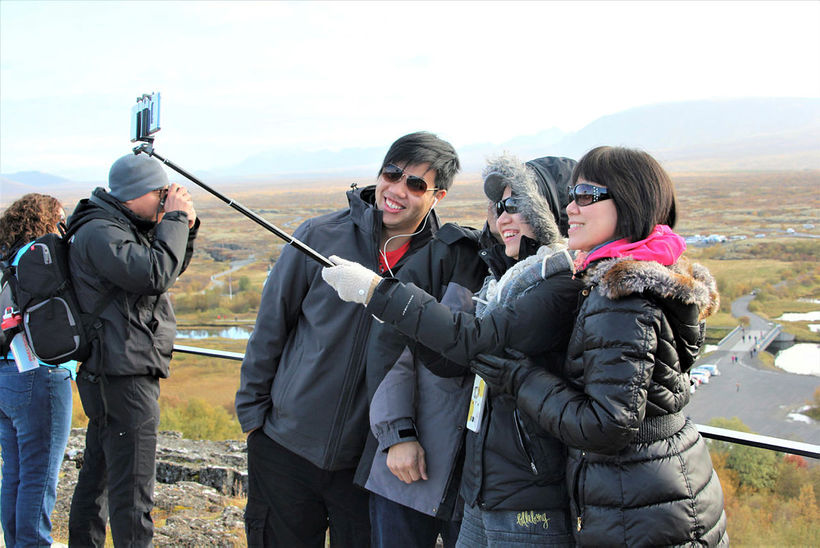Price and Quality Must Go Together
Tourists are generally very pleased with their stay in Iceland, according to a travel industry expert. Sigurður Bogi
Tourists who visit Iceland are generally very pleased with their stay, a travel industry expert reports, even though Iceland is among the world’s most expensive destinations.
“We notice that in spite of [Iceland being so expensive], our guests are generally very pleased with their trip to our country,” Jóhannes Þór Skúlason, CEO of the Icelandic Travel Industry Association tells Morgunblaðið.
“We are very highly rated in surveys done as people leave the country. The guests seem to be pleased with the quality of the service,” he notes.
Tourists who come to Iceland pay close to twice the average European Union price for goods and services. Iceland is, at the moment, Europe’s most expensive country, and most likely among the world’s most expensive destinations. This is the conclusion of a report by Íslandsbanki bank, to be presented this week.
The report shows that prices in Iceland in 2017 were on average about 84 percent higher than in EU member countries. Alcoholic beverages in Iceland cost close to three times the EU average.
Jóhannes Þór has often pointed out how expensive a tourist destination Iceland has become.
“You can look at this from various viewpoints,” he states. “Offering particularly low prices is not a desirable goal. The best would be for price and quality to go hand in hand, as you want to be the case with goods and services in general.”
When asked about the reason for the high price level, Jóhannes explains that it’s a combination of rising costs for businesses and reduced income due to the strong value of the Icelandic króna.
“Since 2010, there has been an enormous rise in costs for businesses. The consumer price index has gone up 25 percent, the construction index by 37 percent and the salary index by 75 percent. The increased cost has resulted in companies being forced to raise the price of their service, or their inability to lower prices to meet changes in currency value.”
Jóhannes stresses the importance of being competitive in terms of quality and professionalism. “We’re focused on that. Companies in the travel industry are aware of the situation.”
Salary increases are expected to be 8-10 percent a year, on top of existing costs. The króna, too, remains strong, although it’s hard to predict future developments in the value of the currency.
Jóhannes believes the State could help reduce prices through legal measures and by reducing various taxes on businesses in the travel industry.




/frimg/1/57/87/1578747.jpg)



